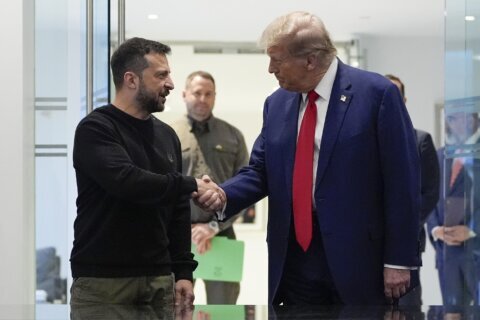Free medical clinics are health care clinics in the community that provide care to underserved patients at no cost to them.
Some free medical clinics focus on specific patient populations like homeless individuals. Others are connected to community-based organizations such as churches and shelters. Volunteering at free medical clinics is a great way for premeds to gain clinical experience while improving the health of underserved people.
Students can get involved by searching for free medical clinics affiliated with their universities and in nearby neighborhoods. Free medical clinics recruit volunteers, and students can gain leadership positions over time.
[READ: How and Why You Should Give Back While in Medical School.]
Here are three tips for students to enhance their free medical clinic experience:
— Shadow physicians.
— Take patients’ medical histories.
— Improve health care access and education.
Shadow Physicians
At free medical clinics, volunteers are often given the opportunity to shadow physicians. Not only can you explore whether a career as a primary care physician is right for you, but you can also learn clinical skills, medical diagnoses and treatment plans.
Shadowing in free clinics is unique because it can help students better understand issues that underserved and uninsured patients face. For example, patients may suffer from complications secondary to heart disease and diabetes because they cannot afford medications.
Take Patients’ Medical Histories
Often before a physician sees a patient in the free clinic, volunteers record the patient’s medical history, including the patient’s symptoms, family health, other medical issues, social situation and any medications the patient is taking. Noting all these aspects about a patient’s life is important in understanding the complete picture of the patient’s health.
As a medical school student and later as a practicing physician, you will need to be both efficient and effective in taking medical histories for each patient. Starting this experience with patients in free medical clinics is a great start to becoming an excellent doctor.
Improve Health Care Access and Education
Because free medical clinics help underserved communities, there are ample ways volunteers can improve the health care of individuals who live in these communities. Students have improved free clinics in these ways: expanding access to care; creating partnerships with nearby hospitals and physician clinics so patients can be referred for follow-up care; creating a drive-thru clinic; offering prescribed medications at no cost; and providing vaccinations and preventive services to patients.
Another way volunteers can make an impact is to create and implement health education programs. For example, you can teach patients about diabetes management and healthy eating while they wait for their appointments.
[READ: 4 Ways Premed Students Can Make an Impact in Nonclinical Settings.]
Here are two examples of students who have made a positive impact in free medical clinics.
Family Van Mobile Free Clinic
Sandhya Kalavacherla volunteered at the Family Van, a mobile clinic that provided health screenings and social services to underserved communities in Boston, while she was a college student at the Massachusetts Institute of Technology. Kalavacherla gained clinical experience by measuring patients’ blood sugar, blood pressure and cholesterol levels, but she especially valued the opportunity to provide health coaching to patients.
Kalavacherla provided education about an array of health care topics and guided patients toward effective solutions. She remembers a patient who seemed surprised to see his high blood pressure reading and asked how it could be possible when he drank a smoothie the day before. Observing the high rates of health illiteracy among vulnerable patient populations coupled with their strong interest in improving their personal health, Kalavacherla found several such teachable moments.
Working with patients from diverse backgrounds, Kalavacherla further realized the importance of tailoring her advice to each patient. When she met a patient who struggled to read nutrition labels due to a language barrier, Kalavacherla coached her on how to better scan nutrition labels and recommended local grocery stores to incorporate a healthier but still affordable diet.
At the start of the COVID-19 pandemic, Kalavacherla and other volunteers continued to engage community members by creating short videos on viral transmission and maintaining mental health.
Kalavacherla says the experiences inspired her future as a physician.
“At the Family Van, I witnessed the disproportionate burden of chronic disease rates among populations traditionally marginalized from our health care system,” she says. “I realized how social factors, institutions and policies play a role in shaping the trajectory of individual health outcomes. In fact, my experiences on the Family Van inspired me to pursue health policy research to help redesign how our social and health care institutions mediate health outcomes.”
[READ: 5 Ways to Develop Cultural Competence in Preparation for a Career in Medicine.]
As a future physician, Kalavacherla is determined to find solutions within clinical medicine and policy to improve the access, affordability and quality of basic medical care, especially for disadvantaged communities.
Vineyard Free Clinic
Zahid Mustafa began volunteering and scribing at Vineyard Free Clinic in Corona, California, after graduating from the University of California— Riverside. He learned how to take vital signs and record patients’ clinical histories. Mustafa says he has “gotten better at knowing what questions to ask when taking an effective medical history. For example, if a patient complains of pain, I ask about the onset, duration, location and severity associated with the pain.”
Working with an array of physicians and serving many patients has been helpful for Mustafa because he knows how to create differential diagnoses for patients.
During the coronavirus pandemic, Vineyard Free Clinic saw a 70% increase in patient volume and questioned how the clinic could continue to provide medical care to the community. Zahid joined the clinic’s leadership team and started a drive-thru medical clinic at a church parking lot.
Seeing many of their patients lose jobs, workers at the clinic wanted to help families in ways outside of medical care. Mustafa helped the clinic apply for and receive a telehealth and food access grant. Now when patients come to the clinic for medical care, they may also receive food for their families. Since March 2020, the clinic has helped provide medical and food access services to more than 12,000 underserved people in Southern California.
“My experiences at Vineyard Free Clinic reaffirmed my desire to be a primary care physician and work in underserved communities,” Mustafa says. “By getting involved in an administrative level at the clinic, I learned how to write grants, research and teach. My passion in free clinics also led me to become a peer reviewer for the Journal of Student-Run Clinics. I developed the skills necessary to help me accomplish my goal of having a career in academic medicine.”
Free medical clinics are a great way for aspiring physicians to gain more clinical experience while giving back to their communities. Premeds can also gain leadership skills and pursue opportunities to create programs.
“I think that getting involved in a free clinic is one of the best extracurriculars a premed can do,” Mustafa says. “Being involved in my free clinic strengthened my ability to adapt to new problems and work as a team to really make a difference in our community.”
More from U.S. News
3 Public Health Courses Premed Students Should Take
U.S. Health Care System Challenges: What Every Premed Student Should Know
Volunteer Activities for Premed Students During Coronavirus Outbreak
How Premed Students Can Make the Most of Free Clinic Experience originally appeared on usnews.com







